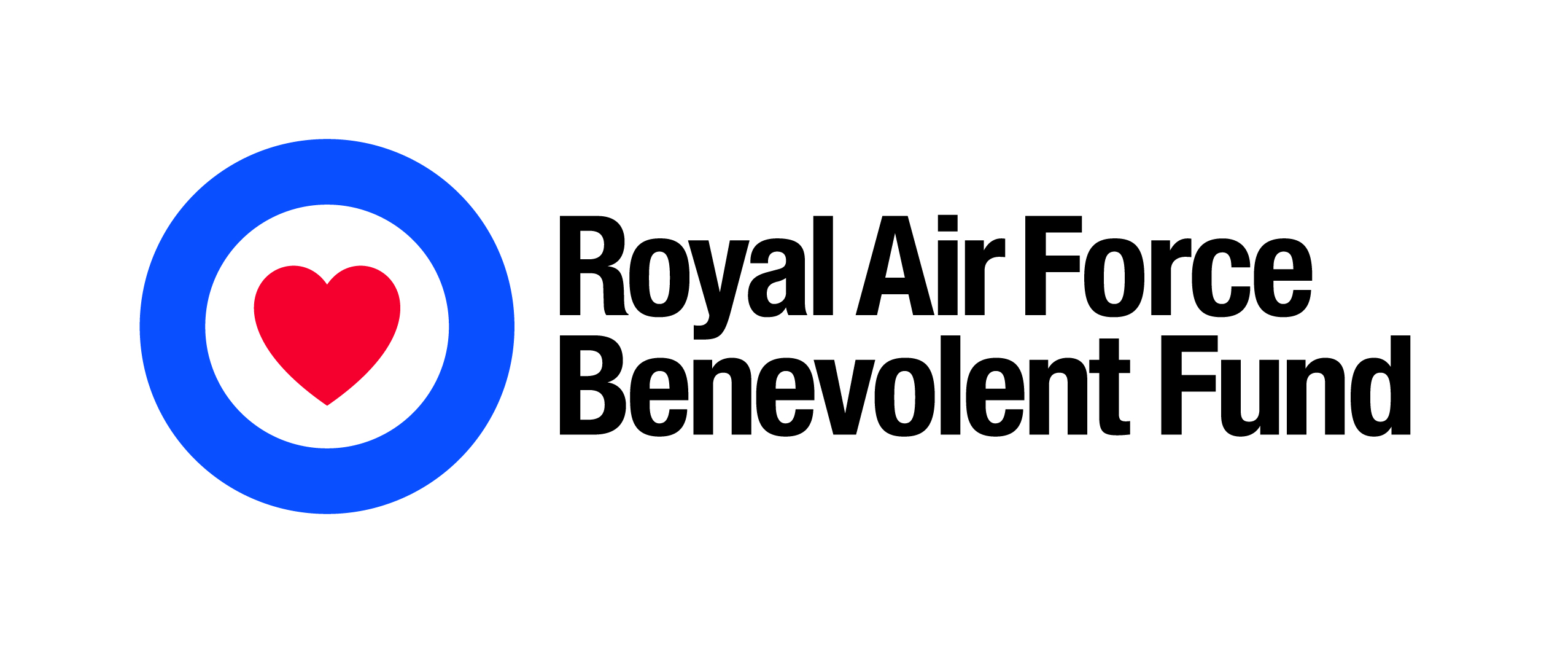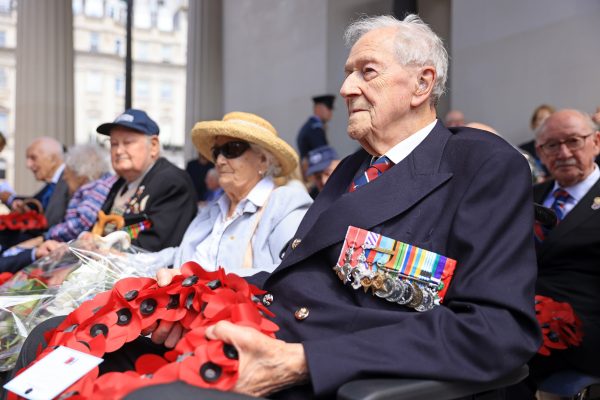All at the RAF Benevolent Fund pay tribute to the service and life of Wing Commander John Bell MBE DFC LdH, who sadly passed away last night at the age of 100 – due to turn 101 on 25 March – at his home in Storrington, West Sussex.
Born on 25 March 1923 in Wandsworth, London, John volunteered as RAF aircrew in June 1942, and was called up a few months later. At 6 feet 4 inches, he was told he was too tall to be a pilot, so trained in South Africa as an observer, combining the roles of navigator, bomb-aimer and gunner. He was posted as a bomb-aimer on his return to England in early 1943, and joined a crew captained by Flying Officer (later Flight Lieutenant DSO DFC) Bob Knights. Following their conversion training, the crew was posted to 619 Squadron, based at Woodhall Spa.
On 24 July 1943, the crew flew its first ‘op’ to Hamburg and the following winter flew to Berlin eight times, during the so-called ‘Battle of Berlin’. After an interview with Wing Commander Leonard Cheshire, the crew joined 617 Squadron in January 1944 in a bid to stay together.
John and his crew were involved in a number of dangerous operations including attacks on viaducts, a railway tunnel, ‘V’-weapon sites, and E-boat and U-boat pens, as well as the Squadron’s vital contribution to the D-Day invasion, all the more poignant with the 80th anniversary taking place this June.
In an interview with the Fund before his passing, John said:
“It’s important that the men of Bomber Command are remembered for their role in D-Day. Bomber Command was a crucial part of the operation behind the lines in bombing rail tunnels and other installations which would prevent the supply of reinforcements to the invasion area. Our involvement was terribly important for the success of the operation and to be involved was a great honour for the Squadron.”
When John had completed a total of 50 ‘ops’ he was awarded the Distinguished Flying Cross and allowed to step back from operations. He trained as a photographic interpreter before moving into the world of Intelligence and, for 25 years, served at Nuneham Park, Singapore and Washington, with a period working with the USAF at Kimpo Air Base, Seoul during the Korean War when the Americans were short of specialist personnel.
John was awarded an MBE for his service in the 1970 New Year Honours List, and finally retired from the RAF in March 1977 holding the rank of Wing Commander. In March 2016 he received the Legion d’Honneur from the French Consul, recognising his bravery and commitment during the Second World War, including his role in precision attacks against factory targets in occupied France and Belgium with 617 Squadron.
John was a huge supporter of the RAF Benevolent Fund for decades – as part of a Sussex Bomber Command veterans group, he held regular reunions, book signings and respite weekends with the Fund. He also played a significant role in raising much needed funding to erect a memorial to commemorate the 55,537 Bomber Command crew who lost their lives in the Second World War. John was a champion for the Bomber Command Memorial in Green Park and through his endeavours, the story of Bomber Command will be passed on to future generations. It is the Fund’s honour to maintain the Memorial for future generations.
Air Vice-Marshal Chris Elliot, Controller of the RAF Benevolent Fund, said:
“We are deeply saddened to learn of the passing of John. He was a treasured member of the RAF Family, not only in his remarkable courage and skill as a part of Bomber Command crew defending our nation through the hardest times, but also in his generous support of the Fund. For that we are incredibly grateful.
”A memorable moment for the Fund was when John attended the unveiling of the Bomber Command Memorial in 2012, where he was joined by other veterans, her late Majesty Queen Elizabeth II and His Majesty the King, as well as thousands of other guests to pay tribute to those who gave their lives serving in Bomber Command during the Second World War.
“The heroism of the Bomber Command veterans inspired a nation during the War, and continues to today. John and his fellow airmen embody the values of the Royal Air Force which the Fund exists to support; brave, humble and selfless. From all at the Fund, our deepest condolences go out to John’s friends and family at this sad time.”


















